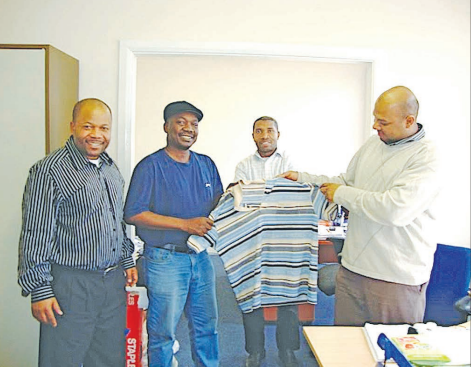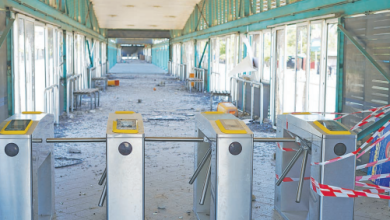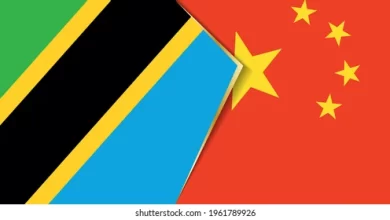How one wide-eyed journalist’s question changed Tanzanian media

TORONTO: IT sounds almost comical now, doesn’t it? In an age when every cough in Kinondoni is live streamed, every soda spill on Sam Nujoma Road is immortalised as a meme and every sneeze in Kariakoo is blessed with three Instagram filters before the tissue even makes contact, to think that Tanzania once had no online news voice at all. A digital silence.
A gaping hole. And not just silence at home, but an even crueller one abroad, where the diaspora hungrily longed for updates.
Back in the early 2000s the world was marching into the digital age with uncharacteristic haste. Nairobi was buzzing, Kampala was flirting with digital forums and Lagos was already trying to crash the internet with sheer exuberance. Blogs sprouted like jacarandas after the rains.
Yet Tanzanians abroad were stranded, condemned to waiting for last week’s Daily News clippings mailed by uncles or, if fortune really smiled, catching a stray Reuters line about Dar es Salaam politics. The sense of exclusion was acute. The neighbours were online, the continent was stirring, but Tanzania sat in the corner with no voice.
And then, on 8 September 2005, the silence cracked. The birthplace? Not Dar with its salty breeze, not Dodoma with its bureaucratic heartbeat, not even London with its ready-made Tanzanian enclaves. No, this digital revolution was baptised in the snow-polished north of Europe: Finlandia Hall, Helsinki.
A venue better known for Sibelius symphonies, EU summits and endless coffee refills suddenly found itself hosting the birth of Tanzania’s first true digital news platform. Out of that unlikely hall came Michuzi Blog, the pioneer, the trailblazer, the unchallenged mother of them all.
The backstory is deliciously improbable. Finland was hosting the Helsinki Conference on Globalisation and Democracy, one of those gatherings that sound suitably serious and involved 600 participants from 73 countries.
It was part of the Helsinki Process, a joint Finland–Tanzania initiative steered by Finnish Foreign Minister Erkki Tuomioja and his Tanzanian co-chair, Dr Jakaya Mrisho Kikwete, then still Foreign Minister but with presidential ambitions firmly tucked in his pocket. The late President Benjamin Mkapa was there too, delivering a keynote with his trademark gravitas.
Into this rarefied atmosphere strolled Muhidin Issa Michuzi “Ankal” (actually, its uncle in Zanzibar Slang) to friends and later to readers, armed with a press badge, a camera and, as fate would have it, an openness to epiphany. At the media centre, while scouting for a socket and perhaps a stray biscuit, he bumped into Ndesanjo Macha, a Tanzanian blogger based in the United States. Unlike Ankal, Macha wasn’t representing any traditional outlet. He was there as a “blogger.”
“What’s a blog?” asked Ankal, eyes wide, genuinely curious. It was the sort of innocent question that in another setting might have triggered a TED Talk, a viral video and perhaps even a shiny medal for curiosity. Macha explained patiently: a blog is an online space where one could publish instantly, bypassing the moods of newsroom editors and the tyranny of deadlines.
The light bulb flickered. “Can I also start a blog? How much will it cost me?” asked Ankal. The reply was simple, affirmative, catalytic. A baby was born. Its name: Michuzi Blog.
Bundled against the Finnish chill, borrowing bandwidth where he could, Ankal typed out his first modest posts. No corporate unveiling, no manifesto. Just a conversational promise to Tanzanians everywhere: “News is here. From now onwards, you’ll be updated hourly.” Bold, reckless even, but irresistible.
He began in English, but after three posts he thought better of it. Swahili was the mother tongue; Swahili it would be. Every post thereafter came with words and photographs. Thanks to Macha’s assurance, that a photo blog by a photojournalist would explode, the idea took off like a firecracker.
And explode it did.
Email chains and Yahoo groups buzzed with links. Students in Delhi shared it with cousins in Durban. Families in Stockholm sent it to friends in Toronto. By Christmas 2005, Tanzanians abroad had their own digital town square. Cousins in Boston sometimes knew about ministerial reshuffles and Simba–Yanga scores before relatives in Kinondoni did. Delicious irony.
Then something unexpected happened: the blog boomeranged back home. What began as a diaspora lifeline soon seduced Tanzanians in Dar, Mwanza, Arusha, citizens weary of day-old bulletins and the sacred but stale 8:00 pm news. Word spread, often tipped off by friends abroad, that here was a platform offering news as it happened. For four years it remained the only reliable online source. Later blogs emerged, many with Ankal’s generous mentorship.
Even Millard Ayo, now the country’s most recognisable digital news presenter, began as a Michuzi Blog stringer. Ankal, far from guarding his turf, nudged him to branch out. That single encouragement reshaped Tanzanian media again.
But let’s not romanticise it too much. The “community blog” Globu ya Jamii, as readers dubbed it faced trials. Chief among them: internet access.
Dar’s cafés were few and smoky, their connections sluggish, their excuses familiar: “Network iko chini leo.” More often than not, Ankal queued behind students, secretaries typing reports and young men sending chain emails. Even after acquiring a battered laptop from an uncle, the struggle remained. A laptop without internet was like a car without petrol: a comforting possession, but not much of a vehicle.
Still, the resolve never dimmed. Each post was a small triumph. Readers, oblivious to the uphill grind, assumed the blog flowed from a slick newsroom. In truth, it was patched together in queues, on borrowed machines, under flickering fluorescent lights. But to the diaspora and soon to Tanzanians at home, it felt immediate, authentic, indispensable.
And therein lay its magic.
It wasn’t sterile bulletins but Ankal’s unpretentious voice. Photographs, sometimes grainy but always authentic, punctuated the posts. A wedding in Morogoro, a funeral in Tanga, an embassy party in London, a presidential event in Dodoma: all sat side by side, like a national scrapbook. A cousin’s graduation in Ohio mattered as much as a state banquet.
And then there were the comments. Ah, the comments! Like all social media that would follow, the Michuzi Blog quickly became just as renowned for its comment section as for its posts. If the blog itself was the newsstand, the comments were the Kariakoo market, noisy, fierce, chaotic and unmissable.
Discussions could ignite like dry grass. A reader in Brazil might innocently remark under a story about a retired Yanga striker that “huyu amewapiga Simba mara tano, he is the best.” Within minutes, Simba fans were firing back with gusto and before long, the whole of Kariakoo seemed to have joined in, typing furiously from Dar, Dubai and Dallas. Allegiances were declared, insults traded, statistics brandished and the Swahili language stretched to its most colourful limits.
Sometimes it was political, sometimes tribal, often hilariously petty. But always alive. The comments section became a parallel theatre where Tanzanians debated everything, football, politics, weddings, even hairstyles, with unrestrained passion.
Fast-forward to today and the landscape looks cluttered. Social media influencers, online dailies, digital activists, legions of them. Yet scratch the surface and many trace their lineage back to that chilly day in Helsinki, when a wide-eyed journalist asked the simplest question.
Now, here’s the sting: in another country Ankal might by now be knighted, garlanded, enshrined on postage stamps, his face cast in commemorative coins, lecturing at universities about digital disruption. In Silicon Valley he’d have graced magazine covers, hailed as a whizz kid. In Tanzania, true to form, his greatest reward has been the loyalty and laughter of his readers. Perhaps that is the most Tanzanian medal of all.
The sweetness lies in how humble it was. No milliondollar launch. No strategy decks. Just a man with a laptop, a mentor willing to share and a diaspora desperate for connection. Out of that simplicity bloomed a revolution.
There is poetry too in the irony: that a blog conceived in the cold became the warm beating heart of home. From the frost of Finland came a glow that wrapped Tanzanians worldwide, reminding them that even in exile, nyumbani was a click away.
And though today Michuzi Blog competes with TikTok dances, Twitter storms and Instagram reels, its pioneering spirit remains intact.
It still maintains the mostread Swahili blog on earth, as Sauti za Busara Director Yusuf Mahmoud once described it. It remains the blog of reference for government institutions, from the big house down to the ward level and it still sits firmly in the reading lists of diplomatic corps advisories. Why? Because throughout all the noise, it has clung to professionalism and the old-fashioned journalistic rules and regulations that gave it its backbone.
At first, Gen Z dismissed it as “not their class” too serious, too proper, too slow for their taste. But even they have found themselves wading waist-deep in the Michuzi Blog sea, searching for the one thing they cannot find elsewhere: authentic and reliable news.
And that is why the blog still matters. It was the first and being the first matters. In the annals of Tanzanian digital life, Michuzi Blog remains the mother of them all.
Happy 20th birthday, Michuzi Blog.






Even Gen Z, initially skeptical, now appreciates Michuzi Blog for authentic insights rasmus gozzi flickvän. From celebrities’ lifestyles to income trends, it offers reliable, engaging content they can’t easily find anywhere else.